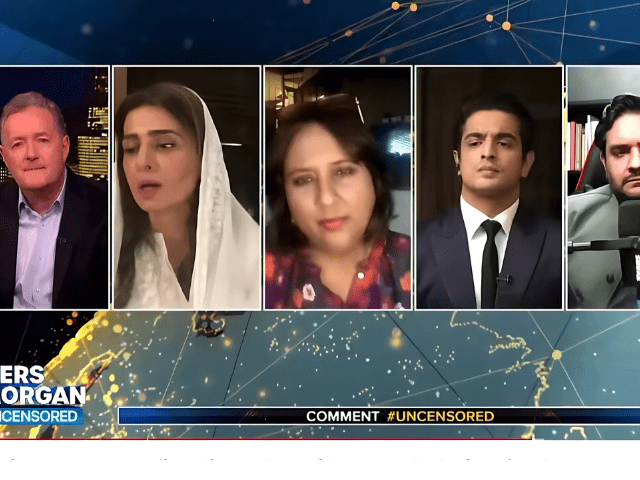Piers morgan host of Piers morgan uncensored Once again it has attracted attention to social networks about its management of a high -risk debate between Indian and Pakistani guests on the current military confrontation and the high fire between the two neighbors with nuclear weapons.
The episode, which featured the former Foreign Minister of Pakistan, Hina Rabbani Khar, the Pakistani podcaster Shehzad Ghias Shaikh, the Indian journalist Barkha Dutt and the Indian influencer Ranveer Allahbadia (also known as Beerbiceps), were announced as a balanced discussion on regional tensions.
However, critics on all platforms accused the show of bad moderation, nationalist bias and became theatrical.
Talking the show turned into a game?
The commentators on YouTube, X (previously Twitter) and Reddit quickly criticized the chaotic format of the episode.
In fact, very badly moderate and missing. More type of talks such as desi interview programs. I did not understand what this @Beerbicepsguy I was doing here! It has nothing to do with this type of discussion and in the presence of serious and sober people.
– SHEROFF SHAFI (@Sheroff_Shafi) May 13, 2025
That debate was a disaster
Ranveer sounded drunk, Barkha acted like a soap star, and Piers thought it was Churchill.
Pakistan didn’t even need to try. 😂
– Stealth Falconer (@StealthFalconer) May 13, 2025
Morgan, known for combative accommodation, was criticized for not challenging the inflammatory claims made by Indian guests. Allahbadia accused Pakistan of exporting terrorism and used visual accessories during his comments, causing online criticism due to lack of evidence or diplomatic nuances.
Dutt, previously seen as a critic of the ruling establishment of India, also adopted a tone of confrontation. Pakistani guests Khar and Shaikh tried to focus on international law and the risks of climbing, but were interrupted or repeatedly marginalized.
The chaotic structure of the episode caused comparisons with regional interview programs, with many spectators who described it as a lost opportunity for constructive dialogue.
Reactions in social networks also observed the absence of moderation or significant responsibility for without foundation.
Despite the intention of the panel to analyze the high fire and diplomatic consequences, the conversation quickly descended to a strong exchange of accusations and political messages.
Analysts said the format reinforced nationalist narratives and did not provide clarity about the basic problems of the conflict.
The segment has caused a renewed scrutiny of the western media approach to conflicts in southern Asia and the risks of divisive voices platforms without adequate editorial control.




